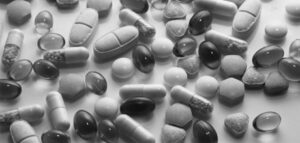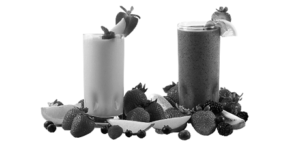
Biologically speaking, salt attracts water in the body, so you hold onto that extra weight instead of eliminating it.
To counteract the problem you should take two steps to keep bloat at bay:
1. Keep it fresh.
Since salt is a preservative, everything that’s packaged or processed will be high in sodium. Plan on making sure that all items you choose are fresh, such as fresh fruits and veggies, whole grains, and lean protein.
If you’re really in a bind for a snack, make sure that packaged bites are low in sodium at 140mg or less. Also, choose foods high in potassium, which is a nutritional counter-balance for sodium. Foods rich in potassium include leafy greens, most ‘orange’ foods – oranges, sweet potatoes, carrots, melon – as well as bananas, tomatoes, and cruciferous veggies like cauliflower).
2. Keep hydrated.
You should drink water all day long, but kick start your morning with coffee or tea. Caffeine is both a natural diuretic and an excellent source of antioxidants, which protect your cells from damage. Herbal teas work too, such as dandelion or fennel root for the best bloat defence.
Also keep in mind that a lot of your hydration throughout the day should come from fruits and veggies. Choose cucumbers, tomatoes, watermelon, asparagus, grapes, celery, artichokes, pineapple, cranberries – all of which contain natural diuretic properties that will also help you stay full due to their higher-fiber, high-water content.









